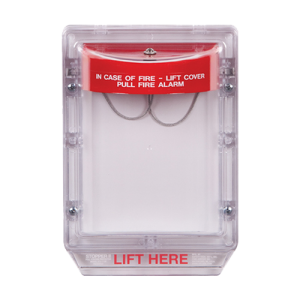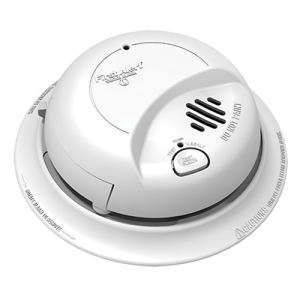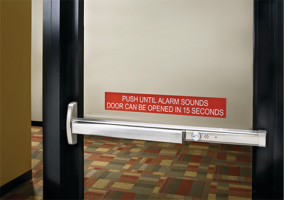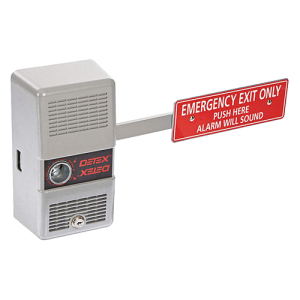Safety
& Security
Emergency Procedure and Notifications
Call 911 Immediately in the Event of An Emergency
- Tell the dispatcher what the situation is, and stay on the phone until all questions have been answered and the dispatcher tells you to hang up.
- You should then call University Housing staff immediately. Notify your RA, CC, or find contact information for a person on call in your building at housing.colostate.edu/about/departments/university-housing
In the event of a University-related emergency, the most up-to-date information will be available at safety.colostate.edu. This is the primary repository for health and safety information related to incidents on or near campus.
- Students and staff are automatically opted in to receive email notifications in the event of a University-related emergency.
- Students and staff can sign up for CSU’s Emergency Text Alert System to receive text alerts in the event of an immediate, ongoing safety emergency or unexpected campus closing.
Per University protocol, Housing & Dining Services will initially defer to emergency responders and the university emergency text alert system to release vital information. As quickly as is permitted, we will share follow-up information with residents and will prioritize on site (i.e. in person) communications followed by text and phone calls if warranted. As the situation allows, we will send follow-up emails and updates. Emergency communications are reserved for threats to life or safety or unexpected closures of campus. Other incidents which do not rise to this level will be handled through routine communication with residents which may include digital/paper signs and/or email notifications to impacted residents.
Parent/Family Notifications
Per University protocol, Parent & Family programs maintains an opt-in email list of parent and family members emails. To be added to this list, please go to parentsandfamily.colostate.edu, scroll down to the bottom right and click “subscribe” next to Subscribe to the Newsletter. Your email address will then be uploaded to the email list within several business days.
In the event of a major and/or prolonged emergency (i.e. threat to life or safety), Housing & Dining Services will partner with Parent & Family Programs to send follow-up email updates to the parents/families of impacted students or the full mailing list, depending on the situation. Immediate forms of communication to students like guidance from emergency responders, on site/in person messaging, texting, and phone calls are prioritized with email communication serving as a follow-up tool. Incidents which do not rise to the level of a threat to life or safety will be handled by Housing & Dining Services through routine communication with residents which may include digital/paper signs and/or email notifications to impacted residents.
Apartment Exterior Safety
Barbecue Equipment
The International Fire Code adopted by the City of Fort Collins, Poudre Fire Authority, bans gas and charcoal grills or any other open-flame cooking devices in apartment communities to within 10 feet of any structure or combustible building. Personal barbecue grills, charcoal or gas grills with propane containers larger than 2.5 pounds, are NOT allowed to be stored or used in ANY University Housing area, to include but not limited to patios and balconies. Also residents may not store lighter fluid, flammable charcoal, or any other flammable materials inside or outside of the apartments.
Extension Cords, Outdoor Lighting, and Holiday Lights
Electrical extension cords are not to be run from the apartment to areas outside of the apartment. This policy includes cords for car engine block heaters in winter.
- No extension cords are permitted outside of the apartment.
- No holiday lights are allowed on apartment exteriors nor on trees, fences, or other University grounds or facilities.
- Use extreme caution with Christmas trees and lights to avoid creating a fire hazard. This includes not overloading electrical outlets, keeping live trees watered, and being careful to dispose of the real pine trees and needles before they become dry and brittle.
- No candles of any kind are allowed.
Property in the Courtyard, Porch, and Patio
Please ensure you move your child’s toys, indoor furniture, sports equipment, and other belongings from the sidewalks in the courtyards as well as porches and patios so that they are not in the way of people walking to and from their apartments, do not interfere with apartment entries, and limit possible theft or other misuse. Always mark your belongings with apartment number and/or names.
West Nile Virus Prevention
The hours from dusk to dawn are peak mosquito biting times for many species of mosquitoes. Take extra care to use repellent and protective clothing during evening and early morning, or consider avoiding outdoor activities during these times. Drain standing water from around your apartment. Some mosquitoes like to come indoors. Keep them outside by watching your screens on both windows and doors. Make a work order for any screens that might be in bad shape.
Report Dead Birds
Dead birds may be a sign that West Nile virus is circulating between birds and the mosquitoes in an area. Though not all infected birds will die, it’s important to remember that birds die from many other causes besides West Nile virus. In all situations you can report dead birds to the complex office.
Apartment Interior Safety
Extension Cords and Power Strips
Try to avoid the use of extension cords whenever possible. If multiple outlets are needed, use a surge protected power strip. All electrical cords should be visible and in the open. Do not place electrical cords under a rug, over a hook, or through door openings. Avoid putting furniture up against plugged in cords, which can cause damage to the cord.
Fire Extinguishers
Fire extinguishers are provided in each apartment. Please make sure that your extinguisher is easy to access. Do not place items in front of the extinguisher. If you have reason to use the extinguisher, you will need to exchange the used one for a new one. This can be done at no cost at the area office during office hours or with the staff member on duty after hours. All fires must be reported to the area office or on the after hours duty phone.
Fire Safety
- Never leave burning candles, incense, or oil lamp candles unattended. Always burn candles in a candle holder and keep away from the reach of children.
- Never leave food cooking on your stove while you are away, even if you are only going to be gone for a minute. CSUPD has responded to several fires where this has been the cause.
- Halogen lamps are not allowed in University apartments. The bulbs can reach extremely high temperatures and can start a fire if they come in contact with flammable or combustible materials (e.g., curtains, bedding, furniture, carpet).
- Explosives of any nature, including flammable liquids, fireworks, and ammunition, are not permitted in any of the apartment complexes or on the premises.
- Kerosene, gasoline, and other flammable liquids should be handled very carefully and kept out of reach of children.
Heat in the Apartment
We hope the following information will be helpful to you in the cold weather months. Please feel free to contact the complex office or after hours staff with any questions or emergencies.
- If you feel the heat is not working, check the thermostat to make sure the setting is higher than the room temperature. If heat does not come on within 10 minutes, call the complex office during office hours or the staff person on duty after office hours.
- During extremely cold (subzero) weather, apartments should maintain at least 65 degrees Fahrenheit but may not get much warmer than that regardless of the thermostat setting in your apartment. We are sorry for any discomfort or inconvenience you may experience. When temperatures are extremely low it is difficult to maintain a temperature above 65 degrees, which is still safe for occupancy. To help keep out the cold, keep windows and doors closed and latched.
- Keep curtains/draperies closed on cloudy days to keep the heat in, and open on sunny days to collect warmth. Make sure windows are closed and locked. Keeping bedroom closet doors closed is also advised during cold weather.
- Keep furniture, carpeting, cushions, etc. away from the heat registers and make sure the dampers are open. Heat must be able to radiate freely from the heat register.
- Roll a bath towel, blanket, or small carpet into a cylinder shape and place it on the floor against the inside of the front door to prevent cold air from coming in.
- When leaving your apartment for extended periods of time, set your thermostat at a minimum of 65 degrees Fahrenheit. This prevents the water pipes from freezing and bursting during extremely cold weather.
- We do not provide space heaters and discourage their use. If you choose to purchase an electric heater, select one with built-in safety features like automatic shut-off and tip-over deactivation, which are the safest option. Remember to shut electric heaters off when leaving the apartment and maintain 3 feet of clear space around the heater. Please obey all warnings regarding combustible materials touching heaters, proper power supply, use of extension cords, etc. Radiant element heaters like your stove burners are very dangerous and are prohibited.
Smoke Detectors
Smoke detectors are installed to aid in the safety and protection of our residents. Do not dismantle or tamper with the smoke detector. Report any malfunction to the complex office immediately. If you hear a smoke detector sounding, do not try to explore the situation; exit the apartment and call 911 immediately.
Apartments will be inspected on an annual basis by employees from HDS Safety who will check smoke/carbon monoxide detectors, fire extinguishers and electrical outlets for hazards or malfunctioning equipment. Residents will be notified in advance of the inspections but need not be present.
Window Screens
The screens in the apartments are not designed to keep people and children in, but to keep insects out. It is the residents’ responsibility to monitor activity near the windows. Do not place furniture that children can easily climb onto near an open window. If you do not know how to lock your door or windows, please contact the area office or your area CC.
For a detailed list of apartment policies, procedures, and safety visit housing.colostate.edu/housing/apartments/policies/.
Fire Safety
Fire Safety Enforcement
These fire- and life-safety standards are intended to assist you with basic starting points in decorating your living area. Variations of personal likes and needs are endless and cannot all be covered in written standards. Your Resident Assistant (RA), Assistant Residence Director (ARD), or Residence Director (RD) can provide you with answers to specific questions that may not have been covered here. If you have questions or concerns about what may or may not be appropriate or allowable, please ASK FIRST. Your residence hall staff may be very helpful in providing or obtaining the correct information for you before any unnecessary time or expense has been generated. Enforcement of the fire- and life-safety standards is everyone’s responsibility. Your residence hall staff and other University health and safety officials will be involved in observing and monitoring all standards. Periodic inspections of student rooms help promote fire- and life- safety awareness, as well as identifying any noncompliance of safety standards. Housing & Dining Services works in conjunction with the Poudre Fire Authority in evaluating fire- and life-safety issues. The Poudre Fire Authority (Fort Collins Fire Department) and Colorado State University Police Department may also be involved when more difficult interpretations are required. Your cooperation in changing or removing any unsuitable materials or life threatening conditions is appreciated. When a fire alarm is activated all residents, guests, and staff are to evacuate the building immediately. NO EXCEPTIONS!
Fire Safety in Student Rooms
Most residence hall fires are caused by candles, open-flame cooking equipment, or overtaxed electrical systems. Toxic gases in smoke, usually caused by burning plastic, can render a person unconscious in a few seconds. To make your room fire-safe, you must follow the guidelines: Smoking is not allowed in any of the residence halls.
- Door Decorations Minimize posters and pictures on your door. These items are combustible. The doors act as a barrier in the event of a fire, and combustible materials attached to the door could get hot enough to ignite and spread fire into your room.
- Ceiling Decorations NO ceiling attachments
- Wall Decorations Posters and wall hangings are acceptable. Cloth wall hangings, however, must be treated with fire retardant and cannot cover more than 20% of wall space in the room as determined by HDS staff.
- Halogen Lamp Halogen lamps ARE PROHIBITED.
- Candles and Open Flames Due to fire safety and the Poudre Fire Authority’s adoption of the 2006 International Fire Code, candles (including unburned or decorative) and any items with an open flame or exposed heating coils are Not Allowed in residence hall rooms. Incense burning is also not permitted.
- Flammable Liquids Kerosene, butane fuel or torches, gasoline, lighter fluid, and other flammable liquids are NOT permitted in the residence halls.
- Appliances The misuse and illegal use of electrical appliances create serious hazards in residence halls. Only safe, relatively low-wattage appliances are permitted in your room. These include hair dryers, hair curlers, study lamps, televisions, music players/speakers, electric blankets, thermostatically controlled coffee makers, hot water pots, small microwave ovens, and compact refrigerators. Do not cook with open flames or coils (no toasters, toaster ovens, or electric coil cook tops) and do not leave food in an appliance unattended. Fires have even been caused by popcorn burning in a microwave! Additionally, swamp coolers, window air conditioners, and similar appliances are prohibited due to the excessive electrical draw on room/building circuits and issues of proper venting that creates a hazard. Housing & Dining Services will provide them to residents in the event of an emergency/extreme weather.
- Electrical Fixtures Electrical light fixtures are not to be modified in any way. If additional outlets are needed, special multiple-outlet boxes with built-in breakers can be purchased at a hardware store. Each power strip used must be plugged into a wall outlet – do not plug power strips into other power strips. Appliances such as microwaves and refrigerators must be plugged directly into a wall outlet, not an extension cord or power strip.
- Holiday Decorations Party and holiday decorations have contributed to fire damage and loss of life in residence halls around the country. Therefore, only artificial trees are permitted in student rooms or lounges. Holiday lights cannot block access to the room by the doorway or the windows. They cannot be hung from the ceiling. Flameproof materials are available at local retailers.
- Social Gatherings in Private Rooms: Must be contained entirely within the room and comply with maximum occupancy limits and Quiet and Courtesy Hour guidelines.
Fire Evacuation/Escape
In emergencies, panic can be your worst enemy. To reduce panic, plan ahead. Before an emergency arises, make sure you know the location of exits and your meeting area (check with your RA). In a fire situation:
- Don’t panic; stay as calm as possible. You will need to think clearly to make the right decisions.
- Feel the door knob with the back of your hand or palm to test for heat.
- If the door is cool, brace yourself against it, and open it slowly to check for flames and/or smoke.
- If there is smoke in the air, stay low and move quickly in a crouched position or crawl to the nearest exit.
- The most breathable air is always near the floor.
- If one exit is blocked, try the next nearest exit.
- Alert others by shouting or knocking on doors as you make your way to the stairs.
- Always escape via stairs – never use elevators.
- Once you evacuate, report to your meeting area
- Follow directions of fire and police personnel, and never re-enter the building until authorized.
Failure to evacuate a building is taken very seriously by the Department of Housing & Dining Services and could result in disciplinary action. There are fire evacuation diagrams and fire extinguishers located on every floor as well as in the main office of each residence hall. Please take time to familiarize yourself with the locations of fire exits, fire extinguishers, and pull-alarm stations in your residence hall. Tampering with fire extinguishers can leave you and others unprotected in case of a fire. Please remember, false alarms could reduce the response of residents when a fire occurs. If hall residents can’t trust the legitimacy of the fire alarm, they may find themselves trapped by fire in a real emergency. Abuse of fire equipment, false alarms, and arson are serious crimes. Violators are subject to fines, University disciplinary procedures, and criminal prosecution.
If You are Trapped During a Fire
If the door to your room is hot to the touch and/or smoke is seeping in around it, don’t open it. Remain calm! The walls, ceilings, floors, and doors of your room are designed with fire safety rated materials which allow for some fire resistance and therefore time to summon help. Pack the space under the door with wet towels, sheets, or clothing to keep the smoke out. Open the window (if you are on the first floor, you may be able to escape safely). Let people know that you are trapped. Dial 911 if possible, wave a towel, sheet, etc. out your window, and yell. Stay low on the floor near the window. Placing a wet handkerchief or towel over your face and head is helpful in smoke-filled rooms. Remember that few people burn to death in fires. Most people die from smoke or poisonous gas inhalation. Often, this results from panic caused by lack of knowledge. So, plan ahead and be prepared! Knowing your escape route and the location of your meeting area, as well as following the Fire Safety guidelines, is your best defense.
Move-In Safety Procedures
We recognize that residents will want to personalize their rooms, and we support these efforts; however, we ask that all residents observe the Safety and Security Standards. Please keep in mind that you should leave your room in the same condition it was in when you checked in at the beginning of the semester.
Room decorations should not be hung or use any materials that may cause damage to the walls. Paint, duct tape, foam tape, or other strong adhesives should never be used. Students are responsible for cost of repairs for any damage. Students should not attach items to the walls, including but not limited to using nails, drills, screws or other hanging devices. Items that do not attach can also cause damage, such as hanging racks that fit over the top of doors. Blue painters tape is recommended to hang posters and pictures. Nothing should ever be hung from, drilled into, or rested against the ceiling, light fixture(s), sprinkler heads, smoke detector, or other safety devices. Furthermore, do not tamper with light fixtures or attempt to change the bulb(s) or add a colored cover. These areas and devices should always remain clear. Please do not rely on any product claims not to cause damage or leave permanent marks. This includes but is not limited to chalk and dry erase markers. Use of these items on room walls, doors, and other surfaces have been proven to leave permanent marks. Students are not permitted to repair any damage themselves. Decorative display and/or collection of empty alcoholic beverage containers is prohibited in residence hall rooms.
For a detailed list of Residence Hall policies, procedures, and safety visit housing.colostate.edu/housing/halls/policies/.

Stopper II
- Purpose/Function – Provides protection to pull station (getting bumped by backpacks, etc.) and prevents false alarm activation
- Upon lifting of cover, a localized alarm will sound, that will be stopped when the cover is placed back on the housing, or switch on inside of cover is turned off
- This device is battery operated, so the status of the battery can impact operation of the device
- Lifting this cover does NOT activate the Fire Alarm System

Smoke Alarms
- Purpose/Function – Designed to alert occupants, with a localized alarm, when there is smoke within a room.
- Smoke Alarms in the residence halls are checked 3 times a year to ensure they are working properly. Smoke Alarms are what are in most of the residence halls rooms
- Smoke Alarm activation does NOT cause the building to go into alarm, the smoke must be detected by a smoke detector before the building is sent into alarm.
- Smoke Alarms run off both battery and wired power, when the battery is low it will begin to chirp indicating it needs a new battery or the detector must be replaced. Refer to your desk manual
- Smoke Alarms are life safety devices and must be operational at all times. If there is an issue call maintenance to have it fixed immediately
Fire Alarm System
- Most Residence Halls are segmented into sections, so when a fire alarm goes off only the affected sections will go into alarm and should be evacuated.
- 5+ Floors = Whole building will go into alarm (Durward, Westfall, Aspen)
- Components – Notifier Panel, Pull Stations, Strobes, Alarms, Smoke Detectors, and Sprinkler System
- CSU Alarm Techs maintain and fix issues with fire alarm system
Older Building Alarms
Newer Building Alarm

Delayed Egress Exit Door
- Purpose/Function – Designed to prevent a door from opening immediately when someone tries to exit under normal circumstances.
- Westfall, Durward, and Palmer are the only buildings with delayed egress doors.
- Delayed Egress Doors must be held for 15 seconds in order for the door to release
- Delayed Egress Doors should disengage so door will open immediately if the building is in alarm.
- A key is needed to shut off and reactivate the alarm

Emergency Exit Egress Door
- Purpose/Function – Designed to prevent a door from being used as an exit under normal circumstances.
- Emergency Exit Doors have an alarm if the door is used
- A key is needed to shut off and reactivate the alarm.